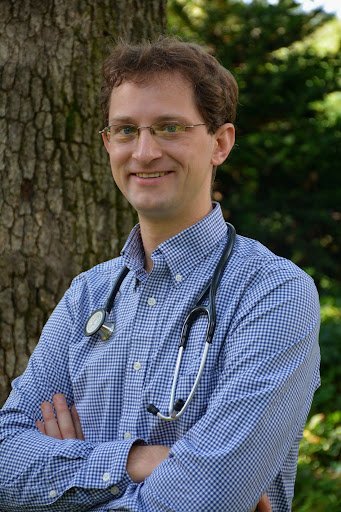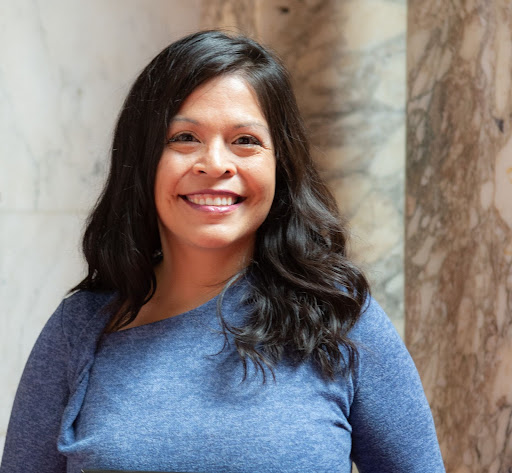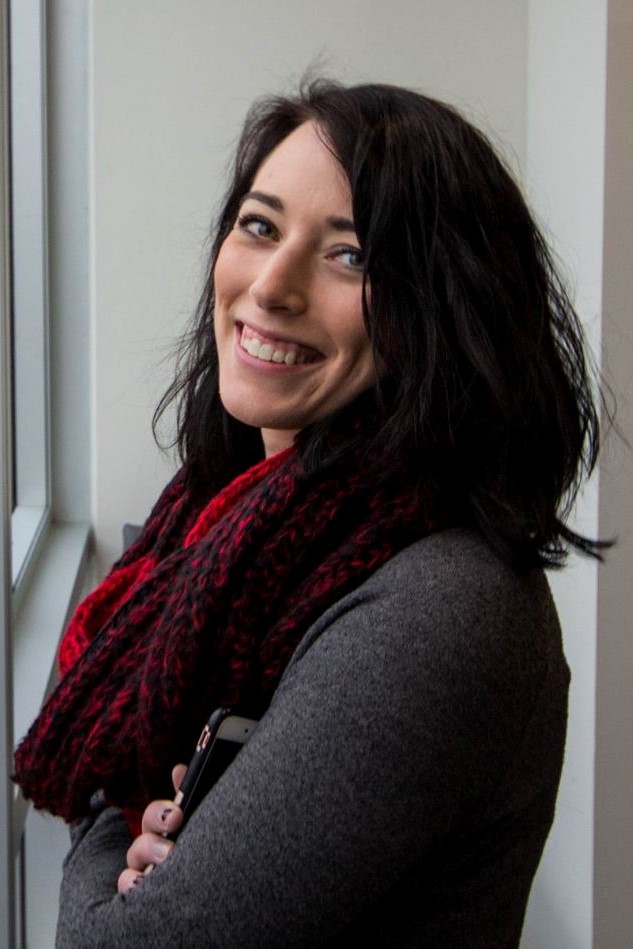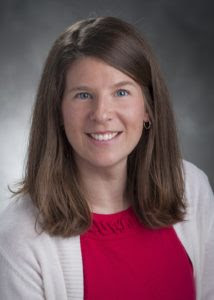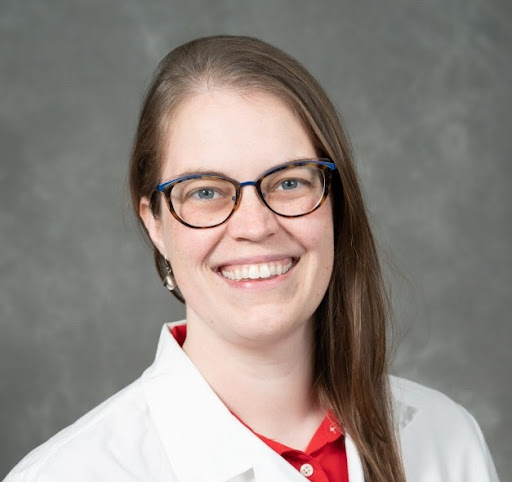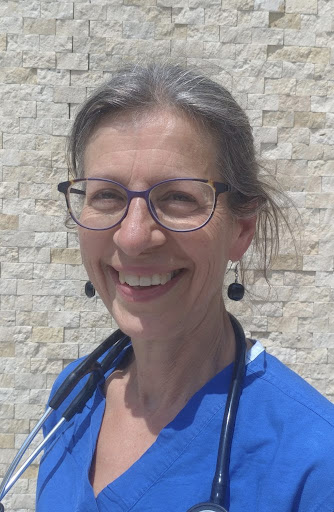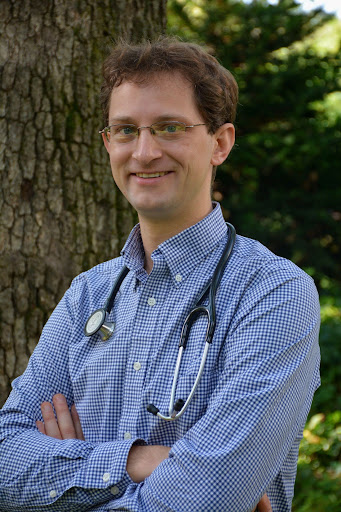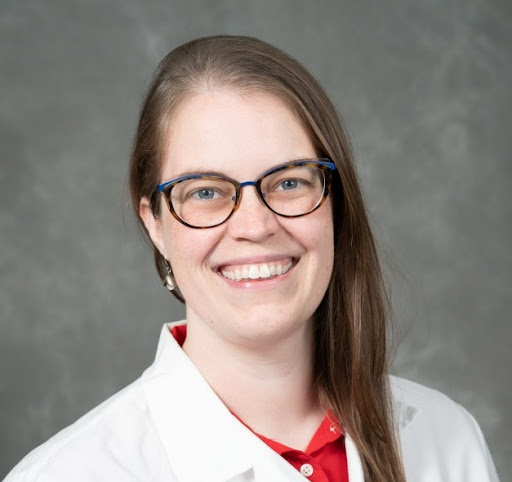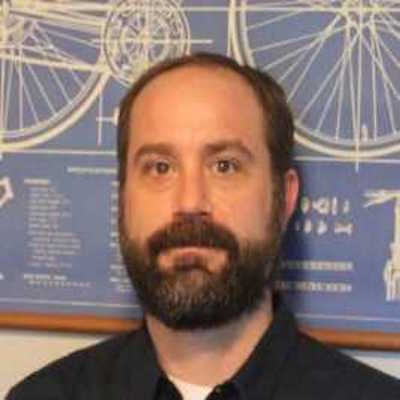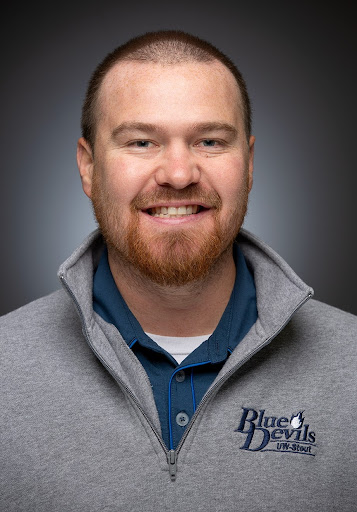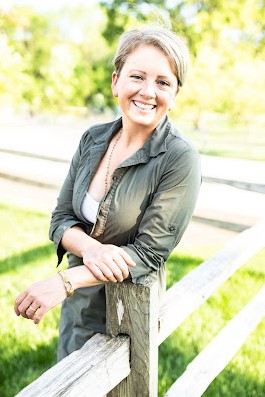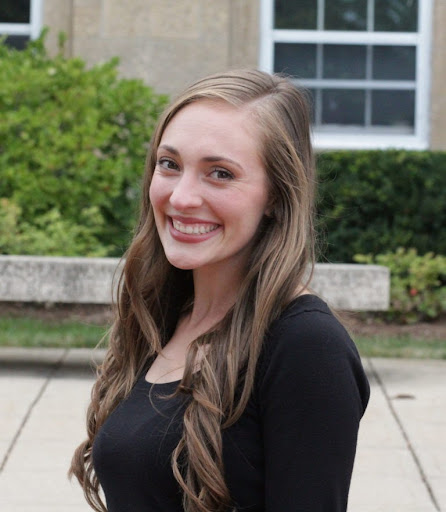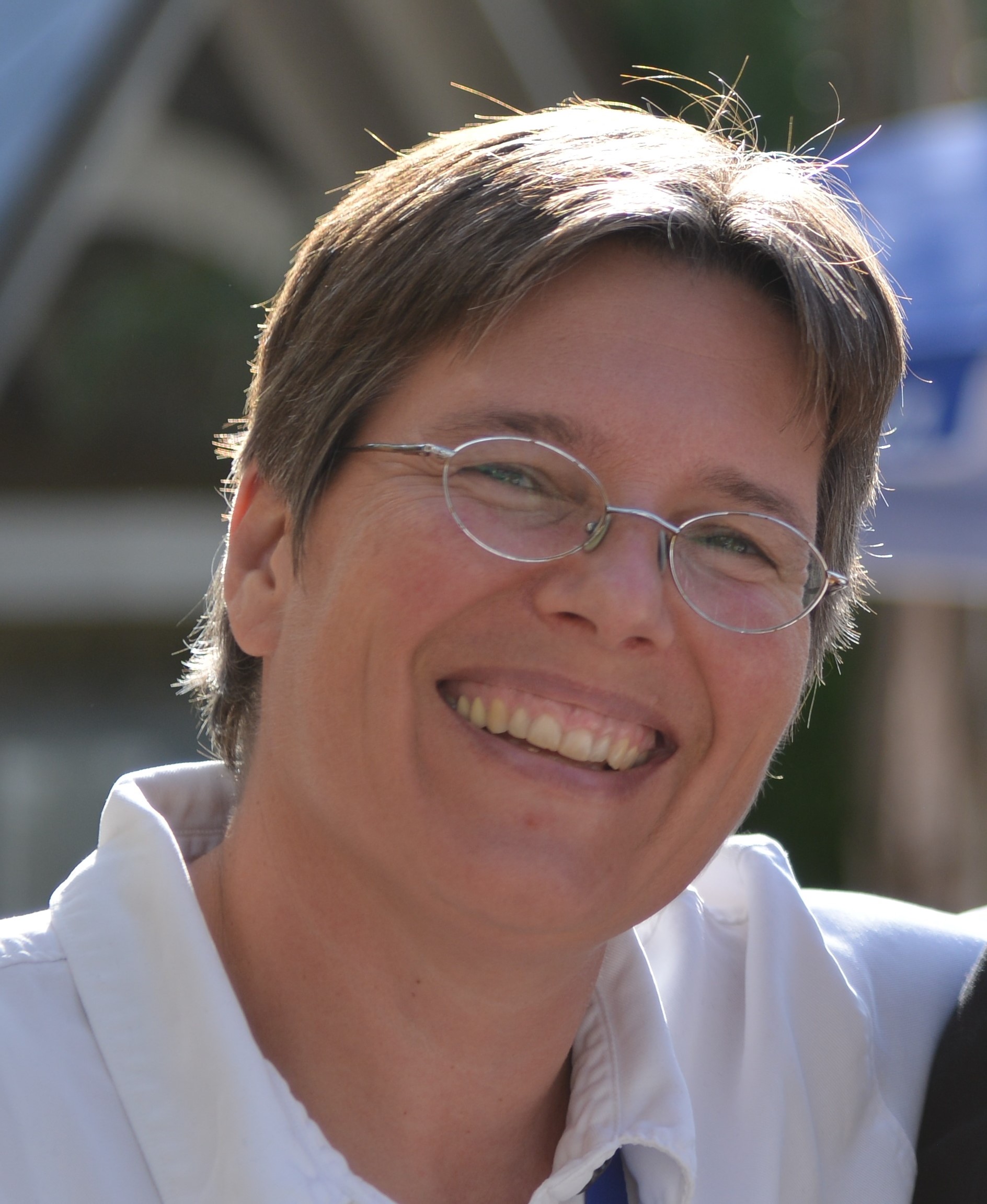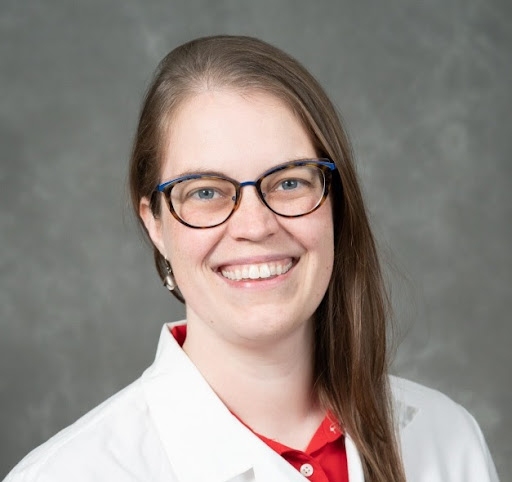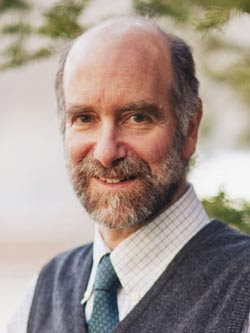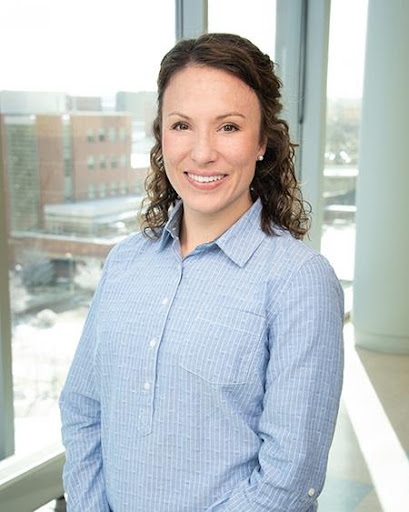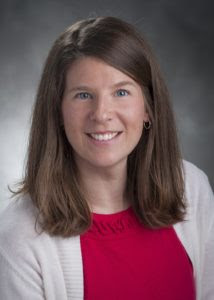
Climate, A Public Health Crisis: Making Connections & Building Solutions Together - Online Course
Climate change is a public health emergency. This course focuses on the harmful health impacts of climate change, and provides tools for healthcare professionals, community members, and students to implement on an individual, department, organization, and community level.
Join us and be inspired to take actionable mitigation and adaptation strategies that reduce the harmful health impacts of climate change. Together we can foster solutions that benefit health.
REGISTRATION PRICING
- Professionals: $50
- Current Wisconsin Health Professionals for Climate Action (WPHCA) Members: $25. WHPCA Membership is free. For more information and to become a member: https://www.wiclimatehealth.org/contact-us
- Community Members: $25
- Students: FREE
Purpose
The negative health impacts of climate change continue to grow. However, typical academic curriculum in the health sciences does not include instruction about environmental and climate health. Improving community wellbeing must include interprofessional knowledge on climate impacts and solutions.
Content* will illustrate how climate change threatens human health, provide strategies to implement immediately, and inspire health professionals to take action.
*Recorded content from the November 13, 2021 conference: Climate, A Public Health Crisis: Making Connections & Building Solutions Together
Needs Assessment
The health consequences of climate change are broad and far-reaching, and negatively impact every social determinant of health. It is critical for the interprofessional health care team to understand these challenges and work toward solutions.
This online course explores various facets of the impact of the climate crisis on the health of individuals and communities. The sessions will cover background on climate and health, solutions to minimize health disparities, and provide tools implement mitigation and adaptation strategies.
Global Learning Objectives
- Discuss recent extreme weather and identify the public health challenges that are a result of climate changes and the relationship between climate change and health equity
- Reflect on your personal narrative, values, ethics, and actions and identify how these align with the climate goals of your institutions and organizations. Explore how these collective values impact local, state, federal, and global level decision making
- Describe the scientific research regarding the health benefits of climate mitigation solutions
- Explain adaptation strategies that can improve health amidst a changing climate
- Illustrate the importance of health professionals as trusted messengers for climate and health issues and apply the learned knowledge via communication and interaction with colleagues, patients, health systems, the public, and policy makers
- Describe strategies for how members of the interprofessional healthcare team can work together to advocate for climate solutions that protect health
Elements of Competence
This educational activity is designed to change learner competence and focuses on the following competency areas:
- The American Board of Medical Specialties: Interpersonal and Communication Skills
- Nursing and Interprofessional: Values/ethics for interprofessional practice, Interprofessional communication and Teams and Teamwork
- Center for the Advancement of Pharmacy Education: Communication, Interprofessional collaboration, Leadership and Population-based care
Target Audience and Reach
This online course will be valuable for all health professionals with interest in climate and health, health sciences students, and the interprofessional healthcare team. The material will be mostly regional but may have some nation-wide reach.
Sponsors
- Brico Fund (Grant)
- University of Wisconsin Department of Family Medicine and Community Health
- Bellin Health
- UnityPoint-Health Meriter Medical Staff
- Advocate Aurora Health
- Aspirus Health
| Introduction to climate health and equity: Overlapping opportunities | ||
Learning Objectives
| ||
The Climate Crisis and Health: Overview, update, and context | Introduction to climate health and equity:
~ Andrew Lewandowski, DO | Heat & Health Equity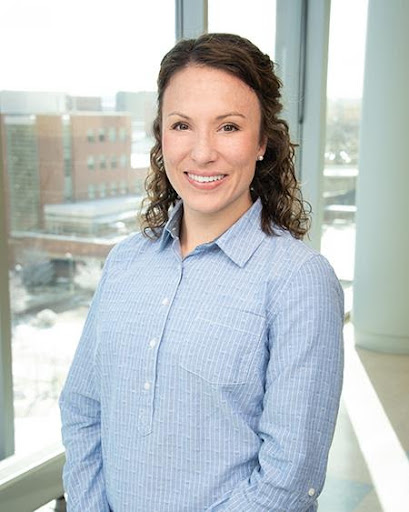 ~ Caitlin Rublee, MD, MPH |
| Working Together to Deliver: Nonprofits, Governance, and Public Health | ||
Learning Objectives
| ||
Renewable Energy in Wisconsin
| State & Federal Climate & Clean Energy Activities
| Wisconsin Climate and Health Program
|
| Invitation to Action and Mentoring for Climate Action | ||
Learning Objectives
| ||
Reflecting on Our Values, a Video
| Climate Action & the Health Care Sector: National Developments and Opportunities to Engage
| |
WHPCA Advocacy & Policy
| WHPCA Advocacy: Successes and Challenges
| |
Mentoring for Climate Action
~ Pam Guthman, DNP, RN | ||
| Taking Climate into the Clinic | ||
Learning Objectives
| ||
Taking Climate into the Clinic: | How surgeons can fight the | How to Build a Green Team
|
| Moving from Here to There: Transportation as a Vehicle to Improve Health | ||
Learning Objectives
| ||
Introduction
| Addressing the Epidemic of Physical Inactivity: A Co-Benefit of Climate Action
| |
Inequity in Active Transportation
| Highway Expansion – Impacts on Urban Planning and Health
| |
| Agriculture: Examining the Roots of Health and Seeding Solutions | ||
Learning Objectives
| ||
Agriculture’s changing landscape:
| Permaculture, Health Care, and Climate Change
| Growing Health and Community: Food as Medicine
|
| Communicating Climate Change and the Costs of Inaction | ||
Learning Objectives
| ||
How to talk about climate change
| Sticker Shock: The Health Costs of Fossil Fuels and Climate Change in the United States
| |
| Climate Change, Mental Health, and Fostering the Adaptive Mind | ||
Learning Objectives
~ Susanne Moser, PhD |
Speakers
Heather Allen, MS | Heather Allen, MS Heather joined RENEW in July 2018 as program director to build support for wind and solar farms and deploy solar on Wisconsin homes, businesses, and nonprofits. Before joining RENEW, Heather worked with the City of Madison, the Natural Resources Defense Council, the National Oceanic and Atmospheric Administration, and the Clean Lakes Alliance. |
Joanne Bernstein, MD | Joanne Bernstein, MD |
Mikhaila Calice, MPA, PhD Candidate | Mikhaila Calice, MPA, PhD Candidate |
Joel Charles, MD, MPH | Joel Charles, MD, MPH |
Donald De Alwis | Donald De Alwis |
Daritza De Los Santos, MS, PhD Candidate | Daritza De Los Santos, MS, PhD Candidate |
Kelly DeMarco, OTR/L | Kelly DeMarco, OTR/L, NBC-HWC |
Claire Gervais, MD | Claire Gervais, MD Claire Gervais is a family practice physician and is a Clinical Associate Professor with the University of Wisconsin Department of Family Medicine and Community Health. She is one of the founders of Healthy Lawn Team and the Wisconsin Health Professionals for Climate Action, and additionally serves on the Steering Committee of the Wisconsin Environmental Health Network. |
Victoria Gillet, MD | Victoria Gillet, MD |
Pamela Guthman, DNP, RN-BC | Pamela Guthman, DNP, RN-BC Pamela Guthman is a Clinical Assistant Professor in the College of Nursing and Sciences at UW-Eau Claire. She’s worked as a public health nurse for decades. She’s part of a statewide effort that resulted in the Wisconsin Public Health Association declaring that racism is a public health crisis in Wisconsin. |
Andrew Lewandowski, DO | Andrew Lewandowski, DO Andrew Lewandowski is a pediatrician with Group Health Cooperative in Madison who has career interests in climate change and health communication. He counsels the public, policymakers, and his patients about climate change and health, and he is leading a team of pediatricians to create climate change communication modules through the American Board of Pediatrics. He is an advocate for climate justice solutions - which are solutions that address the disproportionate burden of disease that is inflicted by climate change on communities. As an advocate, he has served as a resource to the Wisconsin Governor's Task Force on Climate Change, he fills leadership positions for the Wisconsin Environmental Health Network and Wisconsin Health Professionals for Climate Action, and he partners with a diversity of organizations - recognizing the importance of a multidisciplinary approach to climate justice. |
Scott Mann, MS | Scott Mann, MS Find more about Scott, the show, and all that he loves at thepermaculturepodcast.com. |
Gregg May, MS, AICP | Gregg May, MS, AICP Gregg is an urban planner with experience in long-range comprehensive planning for communities in Wisconsin. He has advocated for sustainable transportation policy and led coalition meetings to promote walking, biking, and transit across the state. Gregg sits on the steering committee for Wisconsin’s Coalition for More Responsible Transportation (CMRT) and is also leading efforts within the Wisconsin Climate Table and the RE-AMP network to reduce transportation-related carbon emissions. In his free time, Gregg enjoys a cup of hot tea, cribbage, and any excuse to get up north. |
Susanne Moser, PhD | Susanne Moser, PhD Dr. Susanne Moser is Director and Principal Researcher of Susanne Moser Research & Consulting, in Hadley, MA, a Research Faculty in the Environmental Studies Department of Antioch University New England and an Affiliated Faculty in the Department of Landscape Architecture and Regional Planning at UMass-Amherst. Susi is a geographer by training (Ph.D. 1997, Clark University) who works nationally and internationally as an independent scholar and consultant from a base in western Massachusetts, the ancestral homeland of the Nipmuc and Pocumtuc. Her work with government agencies, non-profits, foundations, and other researchers and consultants focuses on adaptation to climate change, science-policy interactions, effective climate change communication, and psycho-social resilience in the face of the traumatic and transformative challenges associated with climate change. Susi is the editor of two award-winning edited volumes, one on successful adaptation to climate change; the other on how to communicate climate change. She is a prolific writer, an inspiring speaker and has served on scientific advisory boards for Future Earth, the International Science Council, the US National Research Council and has contributed to the IPCC and US national climate assessments. You can learn more about her at https://www.susannemoser.com. |
Chirantan Mukhopadhyay, MD | Chirantan Mukhopadhyay, MD Chirantan Mukhopadhyay is an ophthalmologist and current retina fellow at the University of Iowa. After the birth of his second child, Chirantan became passionate about climate change and believes it is a critical part of patient care, education, and public health. Chirantan helped found the Wisconsin Health Professionals for Climate Action and believes action is the best cure for despair. |
Jonathan Patz, MD, MPH | Jonathan Patz, MD, MPH Jonathan Patz is director of the Global Health Institute at the University of Wisconsin-Madison. He is a professor and the John P. Holton Chair of Health and the Environment with appointments in the Nelson Institute for Environmental Studies and the Department of Population Health Sciences. For 15 years, Patz served as a lead author for the United Nations Intergovernmental Panel on Climate Change (or IPCC)—the organization that shared the 2007 Nobel Peace Prize with Al Gore. He also co-chaired the health expert panel of the U.S. National Assessment on Climate Change, a report mandated by the U.S. Congress. |
Zach Raff, PhD | Zach Raff, PhD Zach Raff is an assistant professor of economics at the University of Wisconsin-Stout. His research primarily examines the benefits and costs of regulatory policy and the environmental impacts of land use decisions. In his work, Raff strives to identify the mechanisms behind estimated relationships, in order to better recommend paths forward that lead to the efficient allocation of resources in society. His research has been published in peer reviewed journals such as American Journal of Agricultural Economics, Environmental and Resource Economics, and Economic Inquiry. |
Maria Redmond | Maria Redmond Maria serves as the Director of the Wisconsin Office of Sustainability and Clean Energy and has worked for the State of Wisconsin for 20 years. Maria is accountable for planning, administration and oversight of statewide energy programs and policies. In addition to helping with the development and implementation of the recommendations from the Governor’s Task Force on Climate Change, Maria is leading the development of a comprehensive statewide clean energy plan. The plan is centered on environmental justice, and will create a pathway to multi-sector deep decarbonization and a bustling clean energy economy that supports a diverse workforce and technology innovation. Maria is a Certified Public Manager and holds a Bachelor of Arts Degree in Psychology and a Certificate in African Studies from the University of Wisconsin – Madison. |
Caitlin Rublee, MD, MPH | Caitlin Rublee, MD, MPH Caitlin Rublee is an Assistant Professor in the Department of Emergency Medicine and the Institute for Health and Equity at the Medical College of Wisconsin. She completed a Climate and Health Science Policy Fellowship following residency training and continues to advocate for patients through research, education, and policy. Dr. Rublee teaches climate change and health to medical and graduate students and serves on the steering committee for The Medical Society Consortium on Climate and Health. Her main interests are in disaster preparedness and improving equitable access to resources and health services particularly during extreme heat, floods, wildfires, and drought. |
Amy Sapola, PharmD, AIHM, IFMCP | Amy Sapola, PharmD, AIHM, IFMCP |
Maggie Thelen, MPH | Maggie Thelen, MPH Maggie graduated with her Masters in Public Health in Environmental Health Science and a certificate in Geographic Information Systems from UW Milwaukee Zilber School of Public Health in 2016 and received her Bachelors in Environmental Studies and Biology from UW Madison in 2012. |
Katie Wickman, MS, RN, CIC | Katie Wickman, MS, RN, CIC |
Samuel Younkin | Samuel Younkin, PhD An Assistant Research Scientist, Samuel Younkin is the lead programmer and analyst for the Global Health Institute’s Health-Oriented Transportation (HOT) Initiative. His research models the health and environmental benefits of increasing active forms of transportation – such as walking and cycling – among populations in the U.S. and abroad. Younkin joined GHI in 2016 with a decade of experience in the analysis of complex health data, including a postdoctoral fellowship in Biostatistics at the Johns Hopkins Bloomberg School of Public Health, graduate study in applied math and statistics, and supporting genetic analyses of Alzheimer’s Disease at the Mayo Clinic. He holds a Ph.D. in Genetic Epidemiology from Case Western Reserve University and a B.S. in Mechanical Engineering from Brown University. |
Planning Committee
| Joel Charles, MD,MPH, Medical Director, Kickapoo Valley Medical Clinic, Vernon Memorial Healthcare | Pamela Guthman, DNP, RN-BC, Clinical Assistant Professor, College of Nursing and Sciences at the University of Wisconsin-Eau Claire | Bruce Krawisz, MD, Emeritus Researcher, Marshfield Clinic Research Center |
| Kelly Demarco OTR/L, Rehab Manager and Green Team Leader, Horizon Home Care and Hospice | Joel Hill, MPAS, PA-C, Assistant Professor at the UW-Madison Physician Assistant (PA) Program | *Abby Novinska-Lois, BS, Executive Director, Wisconsin Health Professionals for Climate Action |
| Nicole Eull, Psy, Director of Wellbeing, Advocate Aurora Health | Jack Kampf, PharmD, MPH, Advocate Aurora Health | Jonathan Patz, MD, MPH, Clinical Instructor and Associate Director of Clinical Education, University of Wisconsin School of Medicine and Public Health, Global Health Institute, Nelson Institute of Environmental Studies, Department of Population and Health Sciences, and Center for Sustainability and the Global Environment (SAGE) |
| Claire Gervais, MD, Clinical Associate Professor, University of Wisconsin School of Medicine and Public Health, Department of Family Medicine and Community Health | Brittany Keyes, DPT, ATC, Beloit Health Systems | Amy Sapola, PharmD, AIHM, IFMCP- Certified Wellness Coach, Institute for Functional Medicine Certified, Practitioner (IFMCP), Herbalist, and Doctor of Pharmacy. |
*Conference Chair
Policy on Disclosure
It is the policy of the University of Wisconsin–Madison Interprofessional Continuing Education Partnership (ICEP) to identify, mitigate and disclose all relevant financial relationships with ineligible companies** held by the speakers/presenters, authors, planners, and other persons who may influence content of this accredited continuing education (CE). In addition, speakers, presenters and authors must disclose any planned discussion of unlabeled/unapproved uses of drugs or devices during their presentation.
For this accredited continuing education activity all relevant financial relationships have been mitigated and detailed disclosures are listed below.
** Ineligible companies are those whose primary business is producing, marketing, selling, re-selling, or distributing healthcare products used by or on, patients. The ACCME does not consider providers of clinical services directly to patients to be ineligible companies.
The University of Wisconsin provides equal opportunities in employment and programming, including Title IX requirements. The University of Wisconsin fully complies with the legal requirements of the ADA and the rules and regulations thereof. If any participant in this educational activity is in need of accommodations, please contact [email protected].
Name | Role | Financial Relationship Disclosures | Discussion of Unlabeled/Unapproved uses of drugs/devices in presentation? |
Heather Allen | Speaker/Author | No relevant relationships with ineligible companies to disclose | No |
Nina Berge |
| No relevant relationships with ineligible companies to disclose | No |
Joanne Bernstein | Speaker/Author | No relevant relationships with ineligible companies to disclose | No |
Mikhaila Calice | Speaker/Author | No relevant relationships with ineligible companies to disclose | No |
Joel Charles | Planner | No relevant relationships with ineligible companies to disclose | No |
Donald De Alwis | Speaker/Author | No relevant relationships with ineligible companies to disclose | No |
Daritza De Los Santos | Speaker/Author | No relevant relationships with ineligible companies to disclose | No |
Kelly DeMarco | Planner | No relevant relationships with ineligible companies to disclose | No |
Nicole Eull | Planner | No relevant relationships with ineligible companies to disclose | No |
Sue Gaard | No relevant relationships with ineligible companies to disclose | No | |
Claire Gervais | Planner | No relevant relationships with ineligible companies to disclose | No |
Victoria Gillet | Speaker/Author | No relevant relationships with ineligible companies to disclose | No |
Pamela Gutman | Planner, Speaker/Author | Workforce Resource Inc. (Fiduciaryofficer), | No |
Joel Hill | Planner | No relevant relationships with ineligible companies to disclose | No |
Jack Kampf | Planner | No relevant relationships with ineligible companies to disclose | No |
Brittany Keyes | Planner | No relevant relationships with ineligible companies to disclose | No |
Bruce Krawisz | Planner | No relevant relationships with ineligible companies to disclose | No |
Grace Leonard | No relevant relationships with ineligible companies to disclose | No | |
| Andrew Lewandowski | Speaker/Author | No relevant relationships with ineligible companies to disclose | No |
Abby Lois | Planner | No relevant relationships with ineligible companies to disclose | No |
Scott Mann | Speaker/Author | No relevant relationships with ineligible companies to disclose | No |
Gregg May | Speaker/Author | No relevant relationships with ineligible companies to disclose | No |
Susanne Moser | Speaker/Author | No relevant relationships with ineligible companies to disclose | No |
Tracy Mrochek |
| No relevant relationships with ineligible companies to disclose | No |
Chirantan Mukhopadhyay | Speaker/Author | No relevant relationships with ineligible companies to disclose | No |
Jonathan Patz | Planner | No relevant relationships with ineligible companies to disclose | No |
Zach Raff | Speaker/Author | No relevant relationships with ineligible companies to disclose | No |
Maria Redmond | Speaker/Author | No relevant relationships with ineligible companies to disclose | No |
Caitlin Rublee | Speaker/Author | No relevant relationships with ineligible companies to disclose | No |
Peggy Rynearson |
| No relevant relationships with ineligible companies to disclose | No |
| Amy Sapola | Planner | No relevant relationships with ineligible companies to disclose | No |
| Margaret Thelen | Speaker/Author | No relevant relationships with ineligible companies to disclose | No |
| Katie Wickman | Speaker/Author | No relevant relationships with ineligible companies to disclose | No |
| Samuel Younkin | Speaker/Author | No relevant relationships with ineligible companies to disclose | No |
Accreditation Statement
 | In support of improving patient care, this activity has been planned and implemented by the University of Wisconsin–Madison Interprofessional Continuing Education Partnership (ICEP) and the Wisconsin Health Professionals for Climate Action. The University of Wisconsin–Madison ICEP is jointly accredited by the Accreditation Council for Continuing Medical Education (ACCME), the Accreditation Council for Pharmacy Education (ACPE), and the American Nurses Credentialing Center (ANCC), to provide continuing education for the healthcare team. |
Credit Designation Statements
American Medical Association (AMA)
The University of Wisconsin–Madison ICEP designates this other, live activity and internet enduring material for a maximum of 8.00 AMA PRA Category 1 Credit™. Physicians should claim only the credit commensurate with the extent of their participation in the activity.
AAPA Credit Designation Statement
| The University of Wisconsin–Madison ICEP has been authorized by the American Academy of PAs (AAPA) to award AAPA Category 1 CME credit for activities planned in accordance with AAPA CME Criteria. This other, live activity and internet enduring material is designated for 8.00 AAPA Category 1 CME credit. PAs should only claim credit commensurate with the extent of their participation. |
American Nurses Credentialing Center (ANCC)
The University of Wisconsin–Madison ICEP designates this other, live activity and internet enduring material for a maximum of 8.00 ANCC contact hours.
Accreditation Council for Pharmacy Education (ACPE)
The University of Wisconsin–Madison ICEP designates this other, live activity and internet enduring material for a maximum of 8.00 hour of knowledge-based CPE credit. Credit can be earned by successfully completing the activity, the assessment and the evaluation. Credit will be provided to NABP CPE Monitor within 60 days after the activity completion.
Universal Activity Number (UAN): JA0000358-9999-22-045-H04-P
American Psychological Association (APA)
 | Continuing Education (CE) credits for psychologists are provided through the co-sponsorship of the American Psychological Association (APA) Office of Continuing Education in Psychology (CEP). The APA CEP Office maintains responsibility for the content of the programs. |
Continuing Education Units (CEUs)
The University of Wisconsin–Madison, as a member of the University Continuing Education Association (UCEA), authorizes this other, live activity and internet enduring material for 0.80 continuing education units (CEUs) or 8.00 hours.
Wisconsin Occupational Therapy Association
 | The Wisconsin Occupational Therapy Association (WOTA) has approved this course as a preferred CEU option for Occupational Therapists and Occupational Therapy Assistants. |
American Physical Therapy Association
This course was approved by the American Physical Therapy Association (APTA) Wisconsin for 8.00 contact hours.
Approval #18437 CEUL081353
Available Credit
- 8.00 AAPA Category 1 CME
- 8.00 ACPE Contact Hours - Pharmacist
- 8.00 AMA PRA Category 1 Credit™
- 8.00 ANCC Contact Hours
- 8.00 APA CE Credits
- 8.00 Occupational Therapy (OT) CE Contact Hours
- 8.00 Physical Therapy Contact Hours
- 8.00 University of Wisconsin–Madison Continuing Education Hours
- 8.00 Approved for AMA PRA Category 1 Credit™
Registration Fees
- Professionals: $50
- Current Wisconsin Health Professionals for Climate Action (WPHCA) Members: $25. WHPCA Membership is free. For more information and to become a member: https://www.wiclimatehealth.org/contact-us
- Community Members: $25
- Students: FREE
ACCESSIBILITY
The University of Wisconsin provides equal opportunities in employment and programming, including Title IX requirements. The University of Wisconsin fully complies with the legal requirements of the ADA and the rules and regulations thereof. If any participant in this educational activity is in need of accommodations, please contact [email protected].
Required Hardware/software
Free, current version of Chrome, Firefox, Safari, or Microsoft Edge with audio and video capabilities. Some older browsers and Internet Explorer could produce error messages or not display the content correctly.

 Facebook
Facebook X
X LinkedIn
LinkedIn Forward
Forward
